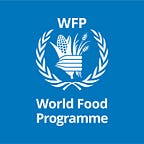One year on: What I’ve learnt from working on the Rohingya crisis
At the one year mark of the Rohingya refugee crisis, four women spearheading the WFP-led Logistics Sector operation in Cox’s Bazar tell us what they wish they had known before going to work on one of the largest humanitarian crises in recent years.
The total refugee population in Bangladesh is now estimated at more than 900,000 — including 655,000 new arrivals just in the past year. The snowballing crisis has pushed resources and logistics systems right to the limit.
With monsoon season now in full swing and heavy rains a daily reality, logisticians working on the ground are having to navigate an incredibly diverse range of logistics challenges and bottlenecks.
It’s a highly sophisticated and complex operation, run by dedicated staff working around the clock to ensure humanitarian supplies and equipment are getting to the many people who rely on them. Here, in a rare quiet moment, some of the faces behind the operation share the advice they would give their pre-deployment selves.
Shilpa Anjali, Hub Manager, Logistics & Engineering Hub in Madhu Chara in Cox’s Bazar
“Having to trudge through a foot of slush and mud to come to the hub every morning didn’t fully contextualise the operation in my mind. Until you actually drive through the camp you don’t see the sheer volume of the people we are trying to serve.”
“So the first thing I’d tell myself is that I would be working on and learning something new every single day.”
“Secondly, I’d tell myself to have confidence in the amount of support that would be available to me when it was needed. While the work is both physically and mentally taxing, the sense of camaraderie with my colleagues really helps.”
“Lastly, I’d tell myself that waterproof and monsoon-proof are two completely different things, and umbrellas are not helpful when the rain is falling sideways — bring wellies!”
Lucy Styles, Logistics Sector Coordinator
“The three things I would tell myself?”
“Number one, always download a map from the Logistics Cluster website to read on the plane to your deployment.”
“Number two, you can read everything you can find but you’ll never understand the layers of complexity that can affect the operation.”
“And number three? A sense of humour is vital. Working long hours in challenging environments can be stressful for everyone, but smiling and having a good laugh keeps everyone’s spirits up in some of the more difficult times. Oh, and bring tabasco sauce!”
Alex Parisien, Information Management Officer
“As this is my first position with the Logistics Sector I did not fully know what to expect. New country, new team, but a familiar role as Information Management Officer. Being an IMO with the Logistics Sector is very different than with other divisions.”
“I would tell myself that I’d instantly have the support of a global team and that I wouldn’t be on my own trying to figure things out. I’d also tell myself not to worry about my new team because things just clicked the first time I stepped into the team prefab on my first day.”
“Secondly, it’s 80% about the relationships — with your team, with the office, with all the people you work with from different organisations, with the man who sells you bananas at the market and the guys who run the restaurant at the hotel. The relationships will make or break your ability to complete your tasks quickly and also determine if you get the good bananas or the bruised ones.”
“Lastly, the “waterproof” labels on the gear I brought with me may have been slightly optimistic!”
Priya Pradhanang, Cargo Tracking Officer
“I’d tell myself, don’t be afraid to ask questions if you don’t understand! Everyone is extremely helpful and will try to make you understand the concept.”
“I would also tell myself that you will gain lots of field experience and get a good overview of other WFP programmes. I’d tell myself that the experience you’ll have in Bangladesh will be completely different to any other emergencies you’ve experienced.”
“Lastly? That you’ll make a lot of friends from around the world and will learn something from each and every one of them.”
Based on the needs of the humanitarian community the Logistics Sector supports the Government of Bangladesh-led response by facilitating access to critical logistics services, consolidating and sharing key information on logistics capacities and the operating environment, and enhancing the capacity of the responding organisations to maintain an uninterrupted supply chain of life-saving relief items.
Story written by Alicia Stafford.
Read more about the work of the Logistics sector in Bangladesh.
